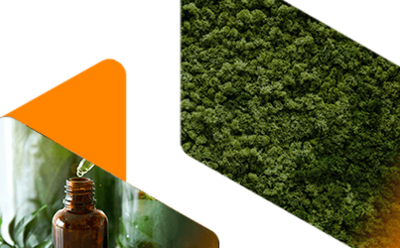Tea tree
EarthOil’s supply partner has organized an organic and fair trade-certified farmers’ group, based around the foothills of Mount Kenya, which grows and produces tea tree oil. Not only does the income provided support more than 950 families, but the families also benefit from the fair trade development premium, which is used in social projects around the farming community.
The farmers receive continual assistance from agronomists and field officers on planting and production procedures, organic and fair trade standards, as well as quality and product integrity. They are also trained about water harvesting techniques, drip irrigation, natural resource management, soil conservation, and health and safety. Financial support is also provided so the farmers can purchase seedlings. EarthOil’s supply partner arranges meetings and annual awards ceremonies where the best-producing farmers are awarded prizes. Farmers are given assistance to attend the meetings if they live in remote areas with poor access. More than 4 million tea trees have been planted to date, and the project is expanding as demand increases.
Fair and safe working conditions
The farmers are paid a fair price for their products. This is audited by the certification body to ensure price negotiations are transparent and the price model is developed together with the farmers. Production costs are covered by the payments and give a reasonable margin to provide a decent and sustained income for the farmer’s household. The farmers have to pay a minimum of local rates to their workers, and working conditions must be clearly defined. No child labor is allowed, and both farmers and workers are trained regularly in first aid and other health and safety guidelines.
Fair trade
As part of the Fair for Life program, a fair trade premium is paid in addition to the sales price and is kept in a separate account for community projects and social development as determined by the producers and workers. The premium is paid for both the produce bought from the farmer and the tea tree produced on EarthOil’s supply partner’s own farm.
The fair trade premium is managed by the farmers’ and workers’ representatives and has been used, for example, to provide secondary school scholarships for six local needy children, water tanks for farmers, bursaries for workers’ and community children, solar panels, gas stoves, computer training, driving licenses, food for orphanages, and local primary schools.
No chemical inputs — All the tea tree production is certified organic, meaning chemical use is prohibited. Soil fertility is maintained and enhanced by use of compost, manure, and mulching. This makes the crop less dependent on external inputs and better for the environment and the health of the farmers, workers, and their families.
Less water usage — Tea trees are drought-resistant plants, so they need very little water. What water is used comes from a glacier-fed irrigation system that runs from Mount Kenya.
No waste — In the facility and farm, our supply partner reuses and recycles as much as possible. For example, macadamia shells from the macadamia industries are used to fire the boilers. The processed biomass is used for mulching and decomposed quickly by our active and efficient soil microflora while reducing evaporation of water at the same time. The donkeys help us keep the weeds down while producing rich manure for the vermicompost. Part of the distillation waste is converted through pyrolysis into Biochar, a beneficial soil amendment that helps retain water and nutrients while storing carbon in the soil.
Distillation
The tea trees are cut by hand and transported to our partner’s distillation unit. The pure-leaf essential oil is then extracted by steam distillation at a processing unit. The oil is stored and packed into sealed drums ready for exporting. Records, separation, traceability, and quality are controlled throughout the process to ensure our requirements are always met.
Uses and benefits of tea tree
The compounds in natural tea tree oil benefit the skin and are nonirritating. Tea tree essential oil contains several important compounds, including terpenes, cymenes, pinenes, terpineols, cineol, sesquiterpenes, and sesquiterpene alcohols, and is widely used in health and beauty applications. Thanks to its antifungal, antibacterial, antiseptic, and anti-inflammatory properties, tea tree oil is ideal for use in shampoos, creams, skin cleansers, moisturizers, body lotions, shampoos, conditioners, mouthwashes, soaps, foot sprays, foot powders, shaving products, and deodorants.

Access your SDS now through your account. New customers can request one here.


 EMEA
EMEA Latin America
Latin America North America
North America Asia
Asia